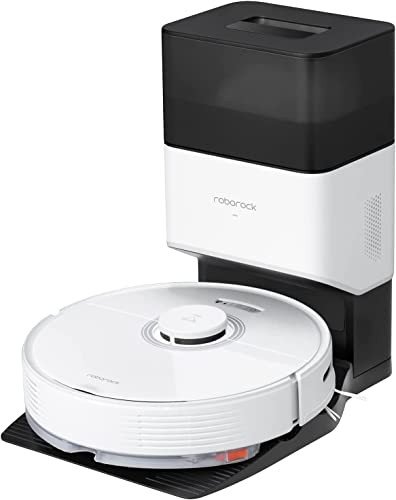10 Reasons Why People Hate Robot Vacuum And Cleaner
The Future of Home Cleaning: A Comprehensive Guide to Robot Vacuums and Cleaners
Recently, the development of robot vacuums and cleaners has actually transformed the landscape of home cleaning. These autonomous gadgets combine advanced innovation with user convenience, offering a service for hectic families that look for to minimize the time spent on cleaning tasks. This article checks out the types, functions, benefits, and frequently asked questions about robot vacuums and cleaners, presenting a clear understanding of how they can improve every day life.
What is a Robot Vacuum and Cleaner?
A robot vacuum and cleaner is a self-operating gadget designed to autonomously browse and tidy floors. It makes use of a mix of sensing units, cameras, and synthetic intelligence to map areas and identify obstacles, successfully vacuuming numerous surfaces consisting of carpets, wood floors, and tiles. Some designs likewise consist of mopping abilities, permitting them to scrub and decontaminate hard floorings.
Types of Robot Vacuums and Cleaners
Robot vacuums come in several types, each created to accommodate specific cleaning needs.
Kind Of Robot Vacuum
Description
Best For
Basic Robot Vacuum
Entry-level vacuums that supply important cleaning services without sophisticated functions.
Budget-conscious users
Smart Robot Vacuum
Features Wi-Fi connectivity, app control, and voice control compatibility with smart home devices.
Tech-savvy people
Roaming Robot Vacuum
Geared up with sophisticated navigation systems, these vacuums adeptly map large areas effectively.
Big homes and open areas
Hybrid Robot Vacuum
Integrates vacuuming and mopping functions in one device.
Users trying to find multi-functional cleaning options
Animal Hair Robot Vacuum
Designed with special brushes and strong suction abilities to take on pet hair.
Animal owners
Key Features to Consider
When choosing the best robot vacuum or cleaner, buyers must think about different features that affect performance and functionality.
- Suction Power: This is essential for deep cleaning carpets and effectively getting debris.
- Battery Life: Longer battery life permits the vacuum to clean larger locations without disturbance.
- Navigation Technology: Advanced models utilize laser or cam navigation, while fundamental designs depend on bump sensing units.
- Smart Home Integration: Compatibility with platforms like Amazon Alexa or Google Assistant can improve user experience.
- Filtration System: High-efficiency particulate air (HEPA) filters are vital for asthma or allergy victims, recording fine dust and allergens.
- Dustbin Capacity: Larger dustbins require less regular emptying, making upkeep simpler.
- Mopping Functionality: Some designs include mopping features for cleaning hard surface areas.
- Sound Level: Quieter robotics permit inconspicuous cleaning, specifically in noise-sensitive environments.
Advantages of Using Robot Vacuums and Cleaners
The adoption of robot vacuums brings various benefits that make them an attractive choice for lots of homes.
- Time-saving: They operate autonomously, permitting users to maximize time for other activities.
- Convenience: Many designs can be arranged to clean at particular times, using flexible options.
- Constant Cleaning: Regular cleaning cycles result in a regularly tidy living environment.
- Ease of access: Robotic vacuums can access challenging areas, like under furniture, that conventional vacuums might deal with.
- Improved Air Quality: Regular usage can reduce dust and allergens, contributing to a much healthier home environment.
Often Asked Questions (FAQs)
1. How do robot vacuums deal with challenges?
A lot of contemporary robot vacuums are equipped with sensors that assist them discover and avoid barriers. Some higher-end designs utilize innovative mapping technologies to develop a design of the environment, permitting more effective navigation.
2. How frequently should I run my robot vacuum?
The frequency of use depends on your family's needs. Typically, running the robot vacuum a number of times a week is recommended, particularly in homes with pets or high foot traffic.
3. robotic vacuum cleaner ?
Yes, numerous designs are specifically designed for family pet owners, including effective suction and specialized brushes to deal with pet hair and dander efficiently.
4. Can I manage my robot vacuum with my mobile phone?
Most wise robot vacuums feature a corresponding mobile app that allows users to manage settings, schedule cleaning sessions, and even keep track of the cleaning activity from their mobile phones.
5. Do robot vacuums just work on hard floors?
While lots of robot vacuums are created for hard floorings, lots of models can likewise efficiently tidy carpets, making them flexible for various floor covering types.
6. What is the average lifespan of a robot vacuum?
The lifespan of a robot vacuum typically ranges from 3 to 5 years, depending on usage, care, and the model's quality.
Robot vacuums and cleaners have transformed home cleaning regimens, offering time-saving services with very little effort. While there are numerous choices readily available, possible buyers must carefully examine their requirements versus the features used by numerous designs. As technology continues to advance, robot vacuums are likely to become even smarter and more efficient, fundamentally altering how individuals approach home cleaning. Accepting this innovation implies delighting in a cleaner home while concentrating on what really matters in life: spending quality time with friends and family.
With the right robot vacuum or cleaner, the future of home cleaning looks both intelligent and simple and easy.
